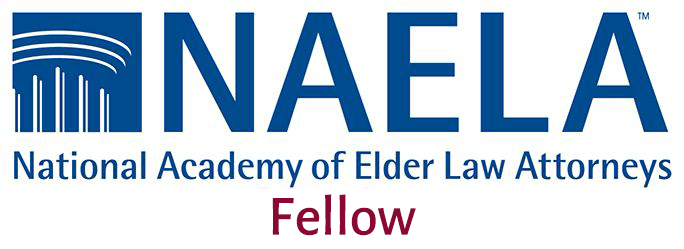If nothing else has you calling our office to ensure your Power of Attorney and Power of Attorney for Healthcare documents are in order, this recent article from The Washington Post will do it.
It is the story of an 80-year-old retired pilot driving his Ford Mustang convertible into a gas station. Someone thought he looked very distressed and called 911. He was placed in the responding ambulance and taken to the hospital, where doctors said he had suffered a stroke.
Most people do not realize the appointment of a guardian is a request to strip the incapacitated individual of their civil rights to manage their affairs. The United States Constitution requires a full court proceeding is necessary as Section 1 of the 14th Amendment to the Constitution provides in part:
No State shall make or enforce any law which shall abridge the privileges or immunities of citizens of the United States; nor shall any State deprive any person of life, liberty, or property, without due process of law; nor deny to any person within its jurisdiction the equal protection of the laws.
Because he lived alone and there was no evidence of family, when he didn’t improve, hospital officials went to court and told the judge he needed a guardian. The judge agreed, and the formerly independent man lost his civil rights and many freedoms, including the right to vote, how to spend his money, and where to live.
More than a million Americans are in guardianship, many of whom are elderly. Despite many horror stories, there seems to be no end to the abuse. Excessive billing, missing funds, and disposition of personal possessions occur with no penalty.
As America continues to age, there’s a little more focus on this arrangement, especially in Florida, where so many seniors go to retire. Florida has 2 million residents aged 75 or older – more than the population of 14 other states. They move to Florida from different parts of the country, away from families, and when they show up in emergency rooms, they are vulnerable.
What happened to the pilot? His family in Pennsylvania began searching for him. After his stroke, he couldn’t tell anyone to call his family, and it’s not clear how hard the hospital tried to reach any relatives. He lived alone, had never married, or had children, but he had a niece who he had regularly visited with other family members in the Philadelphia region.
When he was finally ready to be discharged from the hospital, a staff member of the Orlando hospital signed a petition to the court stating the pilot had no one to take care of his finances or medical decisions. He ended up in a nursing home.
The attorney hired by the hospital made a recommendation for a guardian. The attorney for the hospital was the guardian’s attorney. There is no rule in Florida prohibiting an attorney from representing both the hospital and the guardian recommended by the hospital in the same case.
It’s a long, ugly story where no one responded to the family’s search for their uncle, the court delayed responding to the niece’s query about her uncle’s whereabouts, and the real estate agents undersold the home by more than $100,000. The pilot died two days after Florida declined to pursue a criminal investigation despite a preponderance of evidence of fraud, intent to deceive, and elder abuse.
Takeaways for seniors and their children:
Regular check-ins – by phone, online video chats, and in-person visits, are the best way to keep an eye on family members. Even an estranged family member deserves some regular contact – no matter how grouchy they are.
Estate planning documents are necessary. Everyone, especially seniors living alone, should have their estate planning documents prepared long before they expect to need them. We never know when a stroke or heart attack will happen. These are the important documents everyone should have:
- Durable Financial Power of Attorney – you appoint a person you know and trust to manage your money, pay bills, and manage your household.
- Healthcare Power of Attorney – names a person you know to make medical decisions on your behalf.
- Last Will and Testament – A Will directs the distributions of your property to your beneficiaries. It also names an executor, who is legally responsible for marshaling your assets and paying any debts, taxes, and expenses. The executor is also responsible for making sure the beneficiaries receive their legacies.
- Trusts – can hold assets in case of incapacity, when only the named trustee will have access to funds and as much or as little discretion as you wish to use the funds.
- HIPAA Release – The Release names an individual(s) who can discuss your medical issues with your medical team. Federal law prohibits medical professionals from discussing and accessing your medical records and history without the Release.
- DNR – Do Not Resuscitate – declares your wish not to have CPR performed in the event of a heart attack.
- MOLST (Medical Orders for Life-Sustaining Treatment) – a medical order form signed by a doctor or nurse practitioner to tell others the patient’s wishes for life-sustaining treatment. It is the only document used to document DNR and Do Not Intubate (DNI) orders in a non-hospital setting. Most states allow MOLSTs, but the form may vary from state to state.
- Living Will – A Living Will is a document expressing your wishes if you cannot communicate your wishes yourself. In an end-of-life situation, i.e., if you are in a persistent vegetative state or have a terminal illness, the Living Will expresses your wishes regarding everything from painkillers, artificial nutrition and hydration, dialysis, organ donation, and life-prolonging treatments.
If you don’t have these documents in order, call our office to get things started to protect yourself and your family.
# # #
Reference: The Washington Post (November 4, 2023) “The retired pilot went into the hospital. Then his life went into a tailspin.”










